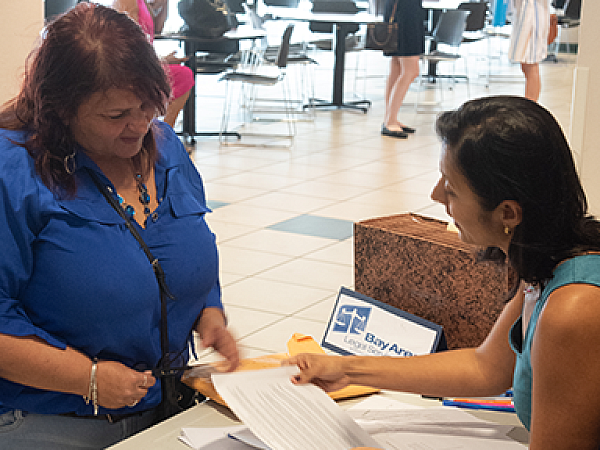Renter Rights: Prohibited Practices by Landlords (VIDEO)
Hi, my name is John Lawless, staff attorney with Bay Area Legal Services’ Disaster Relief Team and the Florida Disaster Legal Aid Helpline.
I’m here with my colleague Jason to discuss some simple steps anyone can take to avoid common issues while recovering from disaster.
Today, we’re here to talk about prohibited landlord practices. Our discussion will be about Florida law, so if you are watching this from elsewhere please remember that these rules can change significantly from state to state. Now, let’s see what our landlord is up to.
Uh-oh. It looks like Jason isn’t happy. Let’s watch and see what he does.
Landlords, when they decide they are unhappy wit ha tenant, sometimes try some creative things to make tenants leave. It’s important to remember that the only legal method for a landlord to remove a tenant without their consent is by filing an eviction and obtaining a judgment for possession. Landlords aren’t allowed to remove tenants on their own, and they aren’t allowed to start damaging the property to make a tenant leave either.
Landlords are not allowed to stop or interrupt any utility service to the rented home, whether directly or indirectly. It looks like Jason is going to try the direct approach, but even a phone call to the utility company to ask them to shut off service is not allowed.
The utilities that a landlord is not allowed to stop or interrupt are not limited to just power or water. If a property has gas, heat, any source of light, an elevator, garbage collection, or refrigeration, the landlord is not allowed to stop or interrupt any of these. It doesn’t matter if the landlord or tenant pays the bills, or whether or not the tenant has paid rent. The landlord is just not allowed to interfere.
Landlords are also not allowed to stop you from entering your rented home. They can’t change the locks, add a padlock, or board up the doors to prevent entry. They also can’t remove the lock, the doors, any windows, walls, or the roof. All of these things are specifically prohibited under Florida law.
The list of things a landlord can’t do is also not limited to the things mentioned here, or in the statute. Other things not specifically listed,but designed to actively and substantially impact the ability of a tenant to use the rented home as a place to live, can also be prohibited practices. Basically, if it seems pretty bad, there’s a good chance it’s prohibited.
All of these are violations of Section 83.67 of Florida Statutes. If a landlord does any of these things, or anything else to violate this section, a tenant can sue to stop them from continuing. A tenant can also sue for any damage caused by the action, or for three months’ rent, whichever is more.
They also get to recover their costs and any attorney fees that need to be paid. Basically, it’s a bad idea for a landlord to try any of this.
Now, if you and your family keep these tips in mind, you’ll be a lot more resilient in the aftermath of disaster, and a lot less like Jason.
You’re in a lot of trouble, buddy.
We appreciate you taking the time to listen. For more information on what to do in the wake of a disaster, please visit the following resources.
Upcoming Legal Clinics
Apply for Services
Apply by phone Monday-Friday, 9 a.m.-4:30 p.m., or apply online anytime for non-emergency legal matters. Language interpreters are available to you at no cost.
Bay Area Legal Services
If you live or have a case in Hillsborough, Pasco, Pinellas, Manatee, or Sarasota counties, we may be able to help.
Statewide Legal Helplines
If you live or have a case in Florida, we may be able to help.
